Aga Khan Trust for Culture-supported women’s craft enterprise in Delhi protects community by producing masks
4 May 2020
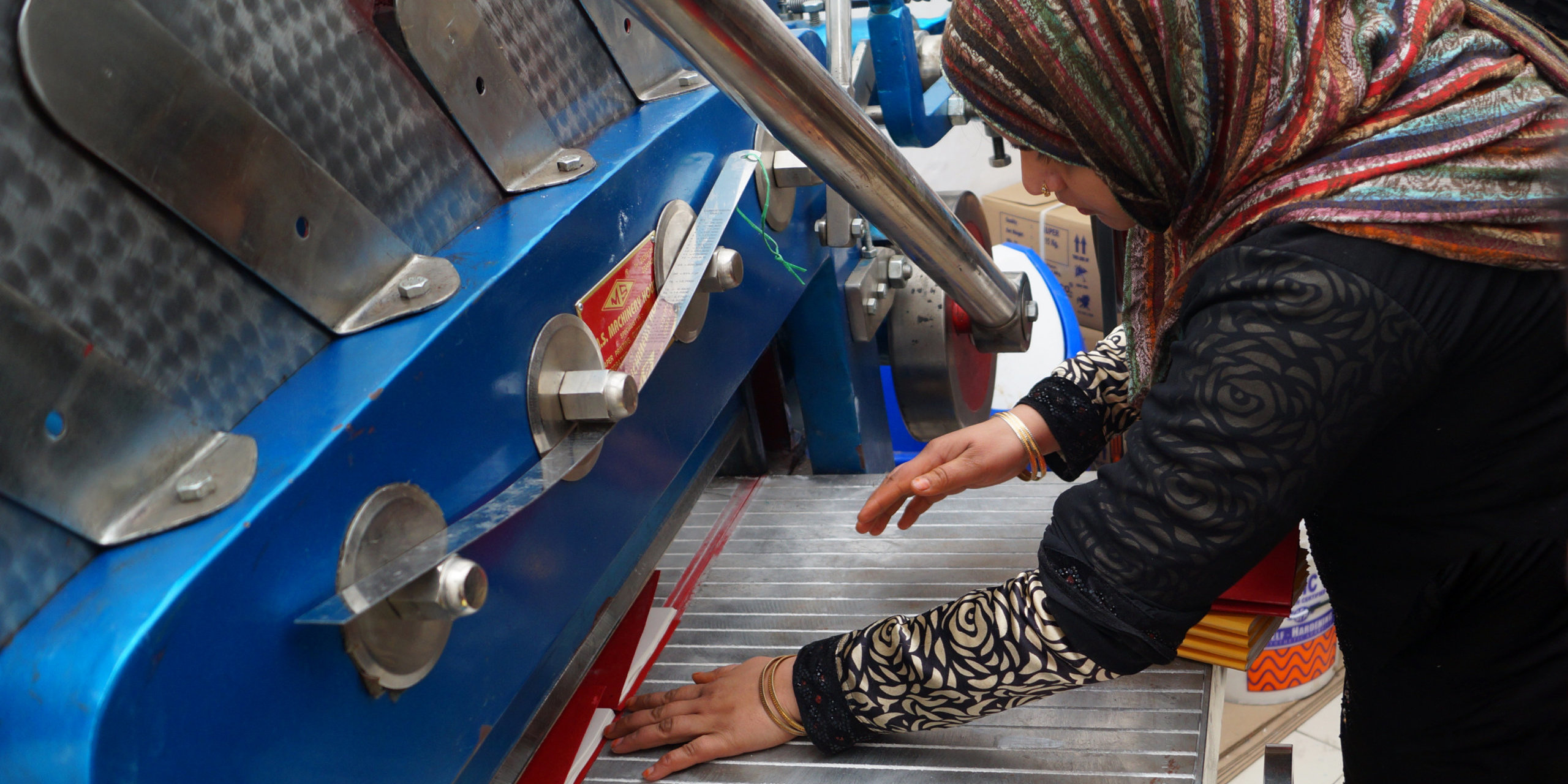
Insha-e-Noor is a women’s business set up by the Aga Khan Trust for Culture to provide livelihood opportunities to women living in the Nizamuddin Basti, adjoining the Humayun’s Tomb World Heritage Site. Usually, they produce souvenirs inspired from the motifs of the monuments but since the outbreak of Coronavirus they have used their skills to produce face masks. Over 10,000 masks have been distributed within their community.
We caught up with AKF’s Swati Batra to learn more.
What is Insha-e-Noor and when was it established?
Insha-e-Noor is a women’s enterprise based in the Basti Hazrat Nizamuddin. In 2008, an Aga Khan Development Network’s Quality of Life Assessment of the area found that only 9% of women in the neighbourhood participated in the workforce. To create additional economic opportunities for women, Insha-e-Noor was established by the Aga Khan Trust for Culture as part of its ‘Nizamuddin Urban Renewal Initiative’ to get more women working and earning an income.
It began as a skill-training programme. More than 200 women were trained in stitching and embroidery and were certified by Jan Sikshan Sansthan, a Government of India initiative for skill training. Insha-e-Noor became an official craft production centre in 2011. It is now a registered Producer Company with its members as shareholders.
What are its objectives?
The main objective of Insha-e-Noor is to provide a sustained, enhanced and dignified source of income to its members – the women of Nizamuddin Basti. All the revenue from sales goes directly to the artisans and to the group.
“The masks are washable and reusable and made using colour fast, skin friendly, cotton material.”
How many women work for Insha-e-Noor and what is their background?
Insha-e-Noor is associated to close to 100 women from Nizamuddin; and indirectly to many others who work at home after learning their skill from the centre.
Most of the members are women with low education and mobility and use their earnings from Insha-e-Noor to support their family income.
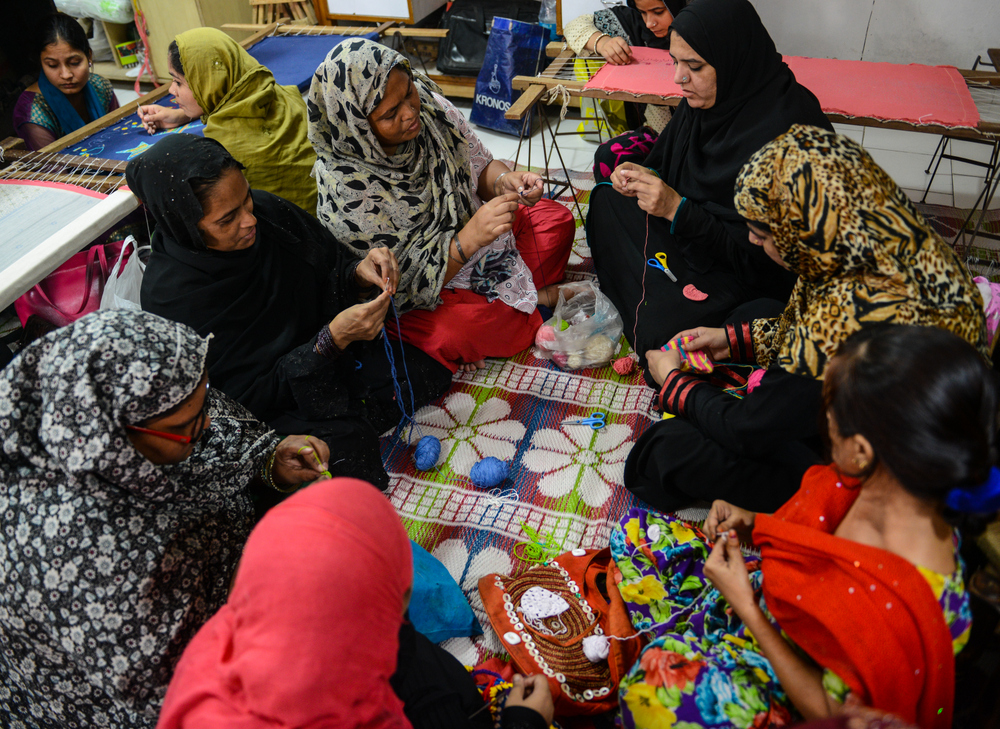
What do your normally produce?
The women members of Insha-e-Noor learn and practice five crafts – embroidery, sanjhi (the art of paper cutting), crochet, garment construction and binding and packaging, under the supervision of dedicated instructors, and produce a range of beautiful handcrafted products marketed under the brand of Insha-e-Noor.
Most of the products of Insha-e-Noor are made using motifs inspired by the ensemble of Mughal monuments near Nizamuddin especially Humayun’s Tomb.
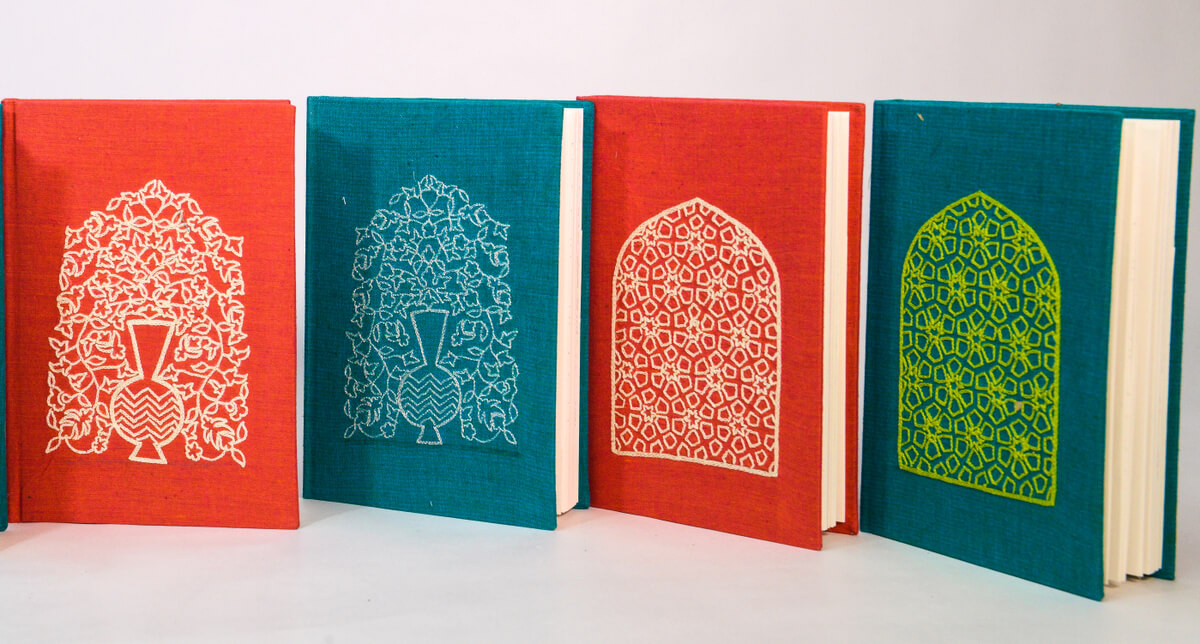
Recently, you switched production to protective face masks, how did that decision come about? Who are the face masks for?
With the onset of this global pandemic, there was a sudden shortage and hence demand for face masks. They were the need of the hour.
Insha-e-Noor started producing cloth face masks a few days before complete lock down happened in Delhi, after which the members continued production from their home. The first batch was made for the construction workers, craftsmen, gardeners, security guards, health workers and others employed at different sites around the neighbourhood.
As the situation became worse and Nizamuddin was declared one of the ‘hot-spots’ of the disease in Delhi, Insha-e-Noor members began producing masks for the wider community. The masks are available for basti residents and homeless population, paid for by AKTC/AKDN, at various points in the area including at the community toilet, the school and ration shops.
The masks are washable and reusable and made using colour fast, skin friendly, cotton material.
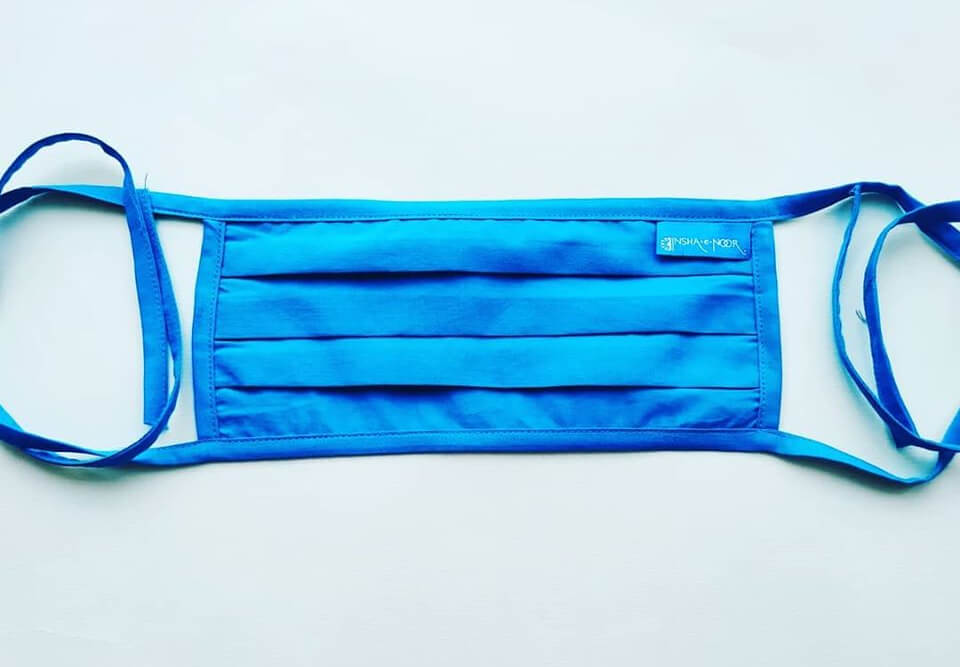
What is life like in the Nizamuddin Basti at the moment? How has life changed?
Life in Nizamuddin Basti changed dramatically almost overnight. Items of daily necessity became hard to get, medical facilities became even more difficult to access.
The Basti is also home to the headquarters of the Tablighi Jamaat – where large congregations were infected by Coronavirus. However, over a month after the Tablighi Jamaat headquarters here were vacated, there has been not a single case of infection amongst residents of Nizamuddin Basti.
Nizamuddin Basti is densely populated, hence it is difficult to maintain social distancing. However, the Aga Khan Foundation team have spared no effort in spreading awareness and the residents have well understood the gravity of the pandemic and are doing all in their capacity to follow the guidelines.
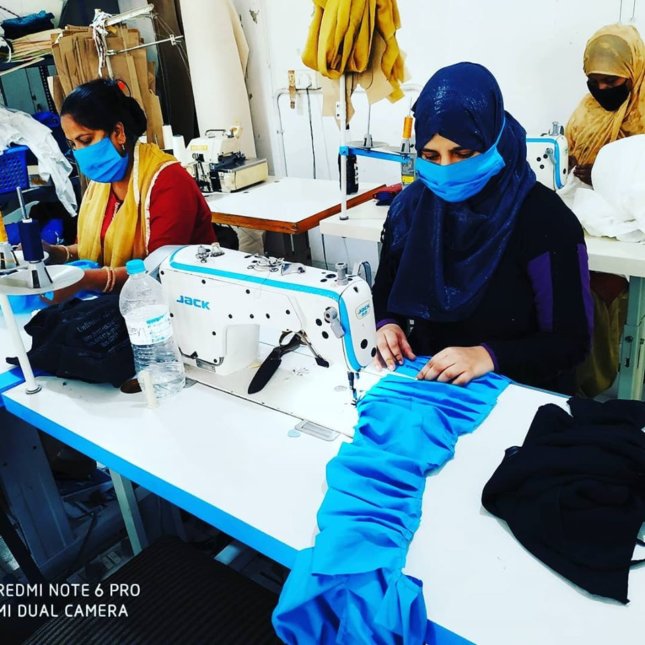
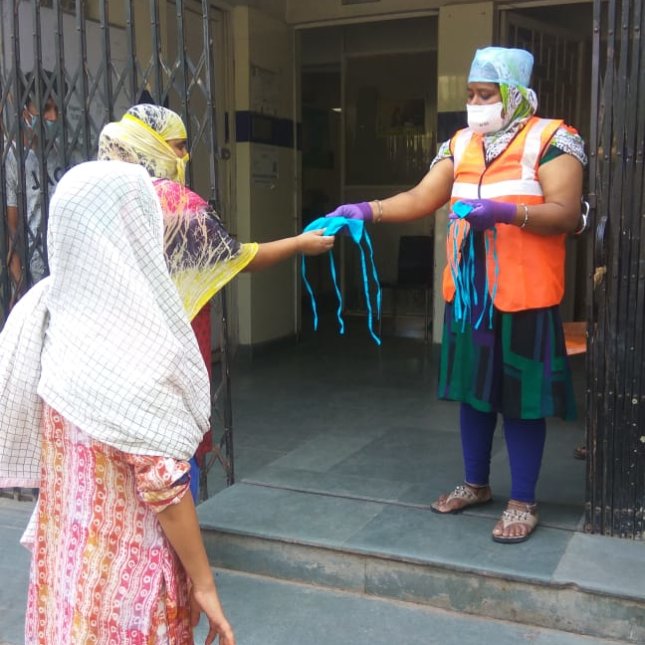
Women at work producing masks (left) and distributing them to health workers (right).
What else is AKDN doing in the Basti to support?
Our health volunteers assisted the Delhi government in carrying out a house-to-house survey. On the area being sealed, we have distributed food rations to 600 of the most vulnerable families – while the government set up their distribution networks.
The AKF-trained community health workers are playing a pivotal role in disseminating important information and spreading awareness in the community. A series of voice messages has been started with one voice message covering an important topic related to Coronavirus being sent out everyday.
That’s great to hear. Thank you Swati.
To learn more about AKTC’s work in Delhi, click here.
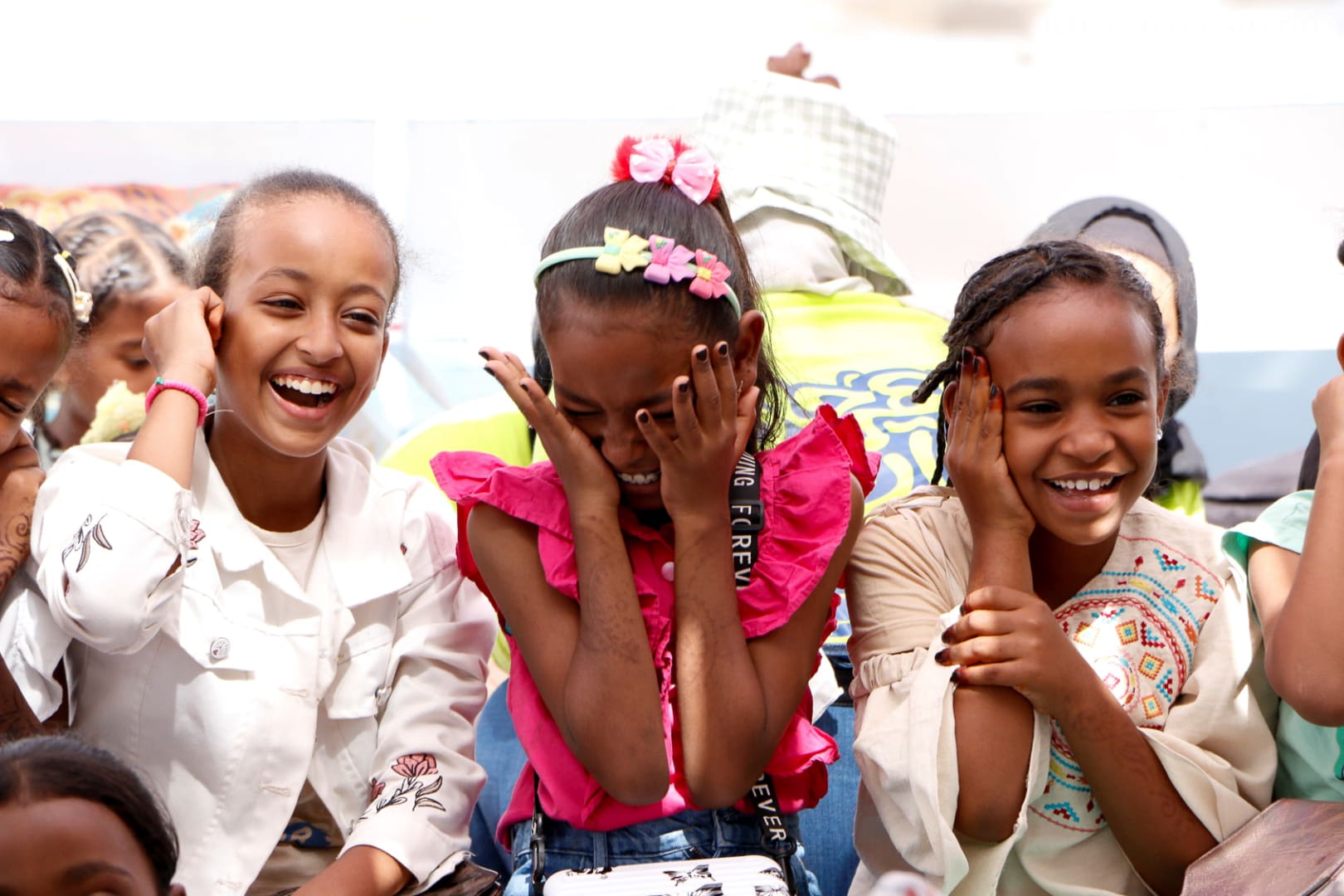
Support our work Your donations are helping us build a future where we all thrive together.